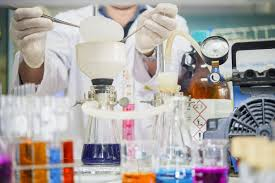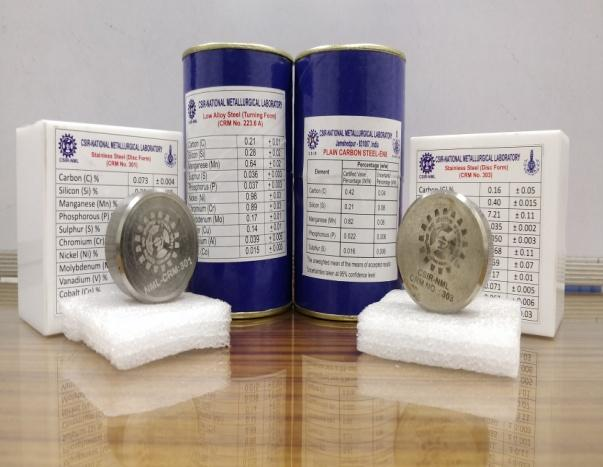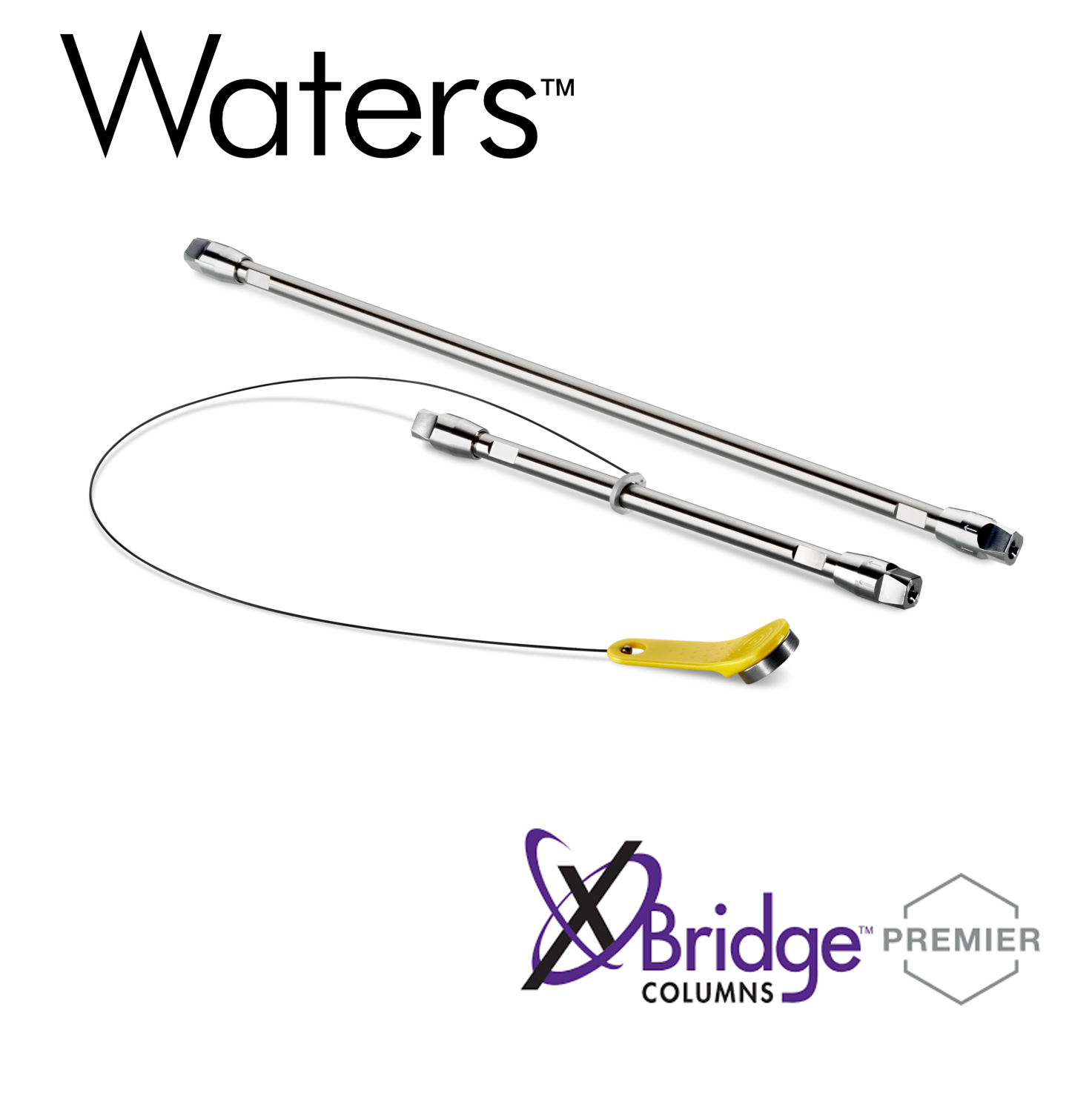Selecting CRMs for your analytical method

The Crucial Role of Chemical Standards & CRMs in Analytical Accuracy

In the realm of scientific research and industrial quality control, the pursuit of accurate and reliable analytical data is paramount. Whether it's characterizing the composition of a novel pharmaceutical compound, monitoring environmental pollutants, or ensuring the purity of a food product, the accuracy of analytical measurements forms the bedrock of informed decision-making. At the heart of this pursuit lies a fundamental principle: the need for precise and traceable reference materials. These materials, known as Chemical Standards & CRMs (Certified Reference Materials), serve as the gold standard against which analytical methods are calibrated and validated, ensuring the integrity and comparability of results across different laboratories and over time.
The importance of Chemical Standards & CRMs cannot be overstated. They provide a crucial link between the analytical measurements obtained in the laboratory and the real-world properties of the substances being analyzed. Without reliable reference materials, analytical results would be susceptible to significant uncertainties, leading to flawed conclusions and potentially costly errors. Imagine, for instance, a pharmaceutical company developing a new drug. The accuracy of the analytical methods used to determine the drug's purity and potency is critical for ensuring its safety and efficacy. If the analytical methods are not properly calibrated and validated using appropriate Chemical Standards & CRMs, the company could unknowingly release a drug that is either ineffective or potentially harmful.
The role of Chemical Standards & CRMs extends beyond ensuring the accuracy of individual analytical measurements. They also play a vital role in establishing traceability and comparability of results across different laboratories and over time. Traceability refers to the ability to link an analytical measurement to a known reference point, typically a national or international standard. This ensures that measurements made in different laboratories can be compared and interpreted consistently. Comparability, on the other hand, refers to the ability to obtain consistent results using the same analytical method in different laboratories or at different times. Chemical Standards & CRMs are essential for achieving both traceability and comparability, as they provide a common reference point for all analytical measurements.
The use of Chemical Standards & CRMs is not limited to specific industries or applications. They are essential in a wide range of scientific disciplines, including chemistry, biology, environmental science, food science, and pharmaceuticals. In each of these fields, Chemical Standards & CRMs play a critical role in ensuring the accuracy, reliability, and comparability of analytical data. For example, in environmental monitoring, Chemical Standards & CRMs are used to calibrate instruments and validate analytical methods for measuring pollutants in air, water, and soil. In food science, they are used to determine the composition and quality of food products, ensuring consumer safety and compliance with regulatory standards.
The demand for Chemical Standards & CRMs is constantly growing as the scientific community increasingly relies on accurate and reliable analytical data. This demand is driven by several factors, including the increasing complexity of analytical methods, the need for stricter regulatory compliance, and the growing importance of global trade and collaboration. As a result, the market for Chemical Standards & CRMs is expected to continue to expand in the coming years.
In this context, the selection of appropriate Chemical Standards & CRMs becomes a critical decision for any laboratory or organization involved in analytical testing. The choice of reference materials can have a significant impact on the accuracy, reliability, and comparability of analytical results. Therefore, it is essential to carefully consider the specific requirements of the analytical method and the intended application of the results when selecting Chemical Standards & CRMs.
This article aims to provide a comprehensive guide to selecting Chemical Standards & CRMs for various analytical methods. We will delve into the different types of Chemical Standards & CRMs available, the factors to consider when selecting them, and the best practices for their use and storage. By understanding these key aspects, laboratories can ensure that they are using the most appropriate reference materials to achieve the highest level of analytical accuracy and reliability.
The Crucial Role of Chemical Standards & CRMs in Analytical Method Validation
In the realm of analytical chemistry, the pursuit of accurate and reliable results is paramount. Whether it's in pharmaceutical development, environmental monitoring, food safety, or clinical diagnostics, the quality of analytical data directly impacts decision-making and ultimately, the well-being of individuals and the environment. At the heart of this pursuit lies a fundamental principle: the use of Chemical Standards & Certified Reference Materials (CRMs). These meticulously characterized materials serve as the bedrock of analytical method validation, ensuring the accuracy, precision, and traceability of measurements.
The importance of Chemical Standards & CRMs cannot be overstated. They act as the gold standard against which analytical methods are calibrated and validated. By providing a known and traceable reference point, they enable scientists to assess the performance of their analytical techniques and ensure that their results are accurate and reliable. This is particularly crucial in regulatory environments where compliance with stringent standards is mandatory.
The Importance of Chemical Standards & CRMs in Method Validation
Method validation is a critical step in the development and implementation of any analytical method. It involves a systematic evaluation of the method's performance characteristics, including accuracy, precision, linearity, range, limit of detection (LOD), limit of quantification (LOQ), robustness, and specificity. Chemical Standards & CRMs play a pivotal role in this process, providing the necessary reference points for assessing these parameters.
For instance, when determining the accuracy of an analytical method, a CRM with a known concentration of the analyte of interest is used. By analyzing the CRM and comparing the obtained results to the certified value, scientists can assess the method's ability to provide accurate measurements. Similarly, CRMs are essential for evaluating the precision of a method, which refers to the reproducibility of results obtained under the same conditions. By analyzing multiple aliquots of a CRM, scientists can determine the variability of the method and assess its precision.
Furthermore, CRMs are crucial for establishing the linearity of an analytical method, which refers to the method's ability to produce results that are proportional to the concentration of the analyte over a specific range. By analyzing a series of CRMs with known concentrations, scientists can determine the linearity of the method and identify any deviations from linearity.
Types of Chemical Standards & CRMs
Chemical Standards & CRMs come in a wide variety of forms, each tailored to specific analytical needs. Some common types include:
- Primary Standards: These are highly pure substances with a precisely known chemical composition and molecular weight. They are used as reference materials for calibrating analytical instruments and preparing standard solutions.
- Secondary Standards: These are materials that have been calibrated against a primary standard. They are often used for routine analysis and quality control purposes.
- Certified Reference Materials (CRMs): These are materials that have been rigorously characterized and certified by a recognized authority, such as the National Institute of Standards and Technology (NIST) or a similar organization. CRMs are typically used for method validation, quality control, and proficiency testing.
- Matrix-matched Standards: These are standards that are prepared in a matrix similar to the sample being analyzed. This helps to minimize matrix effects and improve the accuracy of the analysis.
- Internal Standards: These are substances that are added to the sample before analysis. They serve as a reference point for correcting for variations in sample preparation and instrument response.
Selecting the Right Chemical Standards & CRMs
Choosing the appropriate Chemical Standards & CRMs is crucial for ensuring the accuracy and reliability of analytical results. Several factors should be considered when making this selection:
- Analyte: The Chemical Standard & CRM should contain the analyte of interest and be of sufficient purity for the intended application.
- Matrix: The matrix of the Chemical Standard & CRM should be similar to the matrix of the sample being analyzed to minimize matrix effects.
- Concentration: The concentration of the analyte in the Chemical Standard & CRM should be appropriate for the analytical method being used.
- Certification: The Chemical Standard & CRM should be certified by a recognized authority, such as NIST or a similar organization. This ensures that the material has been rigorously characterized and that the certified values are accurate and traceable.
- Stability: The Chemical Standard & CRM should be stable under the storage conditions used. This ensures that the material does not degrade over time and that the certified values remain accurate.
- Availability: The Chemical Standard & CRM should be readily available from a reputable supplier.
The Role of IT tech in Providing High-Quality Chemical Standards & CRMs
IT tech, a leading provider of lab consumables and equipment, understands the critical role of Chemical Standards & CRMs in analytical method validation. We offer a comprehensive range of high-quality Chemical Standards & CRMs, meticulously selected to meet the diverse needs of our customers in the scientific industry. Our commitment to quality and traceability ensures that our customers can rely on our products to deliver accurate and reliable results.
Our team of experts is dedicated to providing exceptional customer service and technical support. We are committed to helping our customers select the right Chemical Standards & CRMs for their specific applications and to ensure that they have the knowledge and resources they need to achieve successful analytical results.
Conclusion
Chemical Standards & CRMs are indispensable tools for analytical method validation, ensuring the accuracy, precision, and traceability of measurements. By carefully selecting and using these materials, scientists can confidently rely on their analytical results to support critical decision-making in various fields, from pharmaceutical development to environmental monitoring. IT tech is proud to play a vital role in providing high-quality Chemical Standards & CRMs to our customers, empowering them to achieve excellence in their analytical endeavors.
Products You may Like
Check out other IT- Tech product that suit your taste

Pesticides standards
Comprehensive selection of high-quality Pesticides Certified Reference Materials for accurate and reliable laboratory testing.

Per- and polyfluoroalkyl substances (PFAS)
PFAS chemical standards for monitoring pollutants in water, burn sites, and non-stick products.

Custom standards
Custom Certified Reference Materials (CRM) standards tailored for your unique laboratory needs. Trusted quality for over 35 years.
Subscribe to our newsletter
Stay updated with IT-Tech Insights
Related posts
Check out other IT- Tech Scientific Resources

Common challenges in chromatography
Retention problems are a common challenge in chromatography, particularly when working with compounds that are not retentive on traditional reverse-phase (RP) columns.

Multi-component standard mixes vs single standards
When conducting research, accurate calibration and validation are crucial. This often involves using chemical standards or certified reference materials (CRMs). Two common approaches are multi-component standard mixes and single standards. Multi-component mixes offer convenience and cost-effectiveness, while single standards provide greater flexibility and control. This article delves into the advantages and disadvantages of each approach, helping you determine the best option for your specific research needs. We discuss factors such as accuracy, traceability, and cost, providing insights to ensure reliable and accurate results in your experiments.

Understanding certified reference materials (CRMs)
Certified reference materials (CRMs) are highly characterized materials with known and certified properties. They play a crucial role in analytical chemistry by providing a reference point for calibrating instruments, validating analytical methods, and ensuring the accuracy of measurements. CRMs are essential for quality control, research, and regulatory compliance. This article explores the importance of CRMs, their different types, and how they contribute to reliable and accurate analytical results. Discover how IT tech can provide you with a comprehensive range of Chemical Standards & CRMs to meet your specific needs.










































































